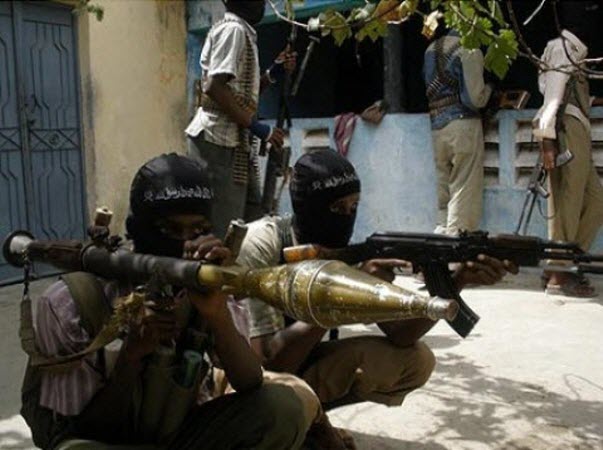There are no products in your shopping cart.
| 0 Items | £0.00 |

 BREAKAWAY Boko Haram faction Islamic State West Africa Province (Iswap) is reported to have dropped its leader Abu Mus’ab Al-Barnawi and replaced him with Abu Abdullah Ibn Umar Albarnawi in a move that has left security officials guessing.
BREAKAWAY Boko Haram faction Islamic State West Africa Province (Iswap) is reported to have dropped its leader Abu Mus’ab Al-Barnawi and replaced him with Abu Abdullah Ibn Umar Albarnawi in a move that has left security officials guessing.
Previously unknown, Abu Abdullah Ibn Umar Albarnawi is said to have replaced Al-Barnawi, whose father Muhammad Yusuf founded Boko Haram in 2002. Al-Barnawi or variations of it derive from Arabic words meaning the man from Borno and this replacement has raised questions about the fate of Al-Barnawi and what direction the group will now take under this new leadership.
One source said: “The big question is, where is Al-Barnawi? Is he alive or is he dead? Knowing how Boko Haram operates, it is unlikely for a leader to be deposed and allowed to move freely.”
Under Al-Barnawi, Iswap split from long-time Boko Haram leader Sheikh Abubakar Shekau in mid-2016 in opposition to the latter’s indiscriminate targeting of civilians. Sheikh Shekau had previously pledged allegiance to Islamic State (IS) chief Abubakr al-Baghdadi in 2015 but IS recognised only Al-Barnawi as leader.
However, Al-Barnawi was considered only a figurehead, with the real power being held by his second-in-command, Mamman Nur, who was the mastermind behind the 2011 bombing of the UN headquarters in Abuja which killed 26 people. He was assassinated by more radical Iswap commanders in August 2018 and since then, Al-Barnawi is believed to have been living on the fringes, careful not to cross the path of the new leadership and incur their wrath.
Another source said any change in leadership could be considered a formality as Al-Barnawi had long lost relevance in the group. He added that Nur’s demise followed a lull in Iswap activities in northeast Nigeria and the abduction of more than 100 schoolgirls from Dapchi town in February 2018.
Apparently, the more radical members of the group accused him of helping himself to a ransom allegedly paid for the girls’ release, robbing them of cash needed for operations. Since July last year, Iswap attacks on military bases and soldiers have increased, not only denting morale but also allowing the jihadists to restock vital arms and ammunition.
One of the most recent attacks came just hours before polling was due to begin in presidential elections on February 23 and saw rockets fired on the Borno State capital, Maiduguri. Weapons experts have identified the rockets used as those seized from the Nigerian Army in an attack on the Lake Chad town of Baga in December.
Whether Al-Barnawi has suffered the same fate as Nur is unclear but his absence would explain the more aggressive positioning of the group in recent months. Sources say that his only guaranteed way out alive was to abdicate but even that would be a risk for the new leadership.
Analysts said the increasing number and intensity of attacks indicated a greater capacity and mobility, as well as possible wider support from jihadist groups in the Sahel region. IS’s silence on Nur’s execution was a clear sign of its helplessness in reining in Iswap, one other source said.